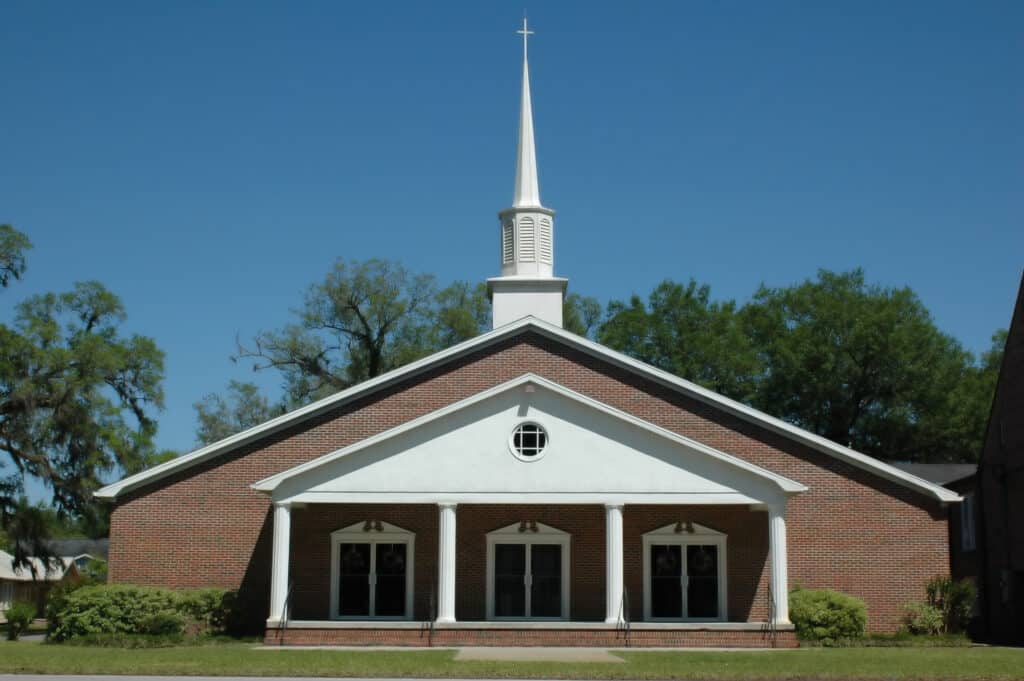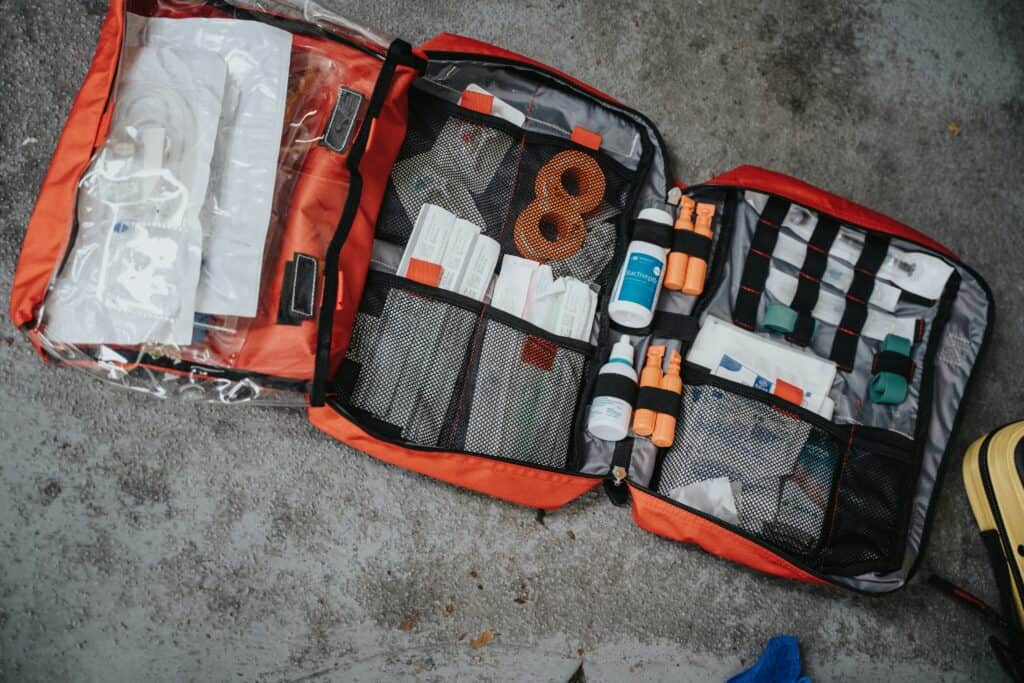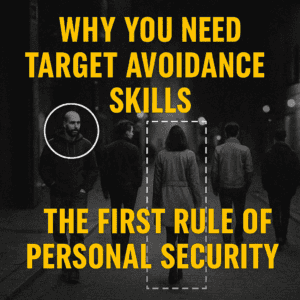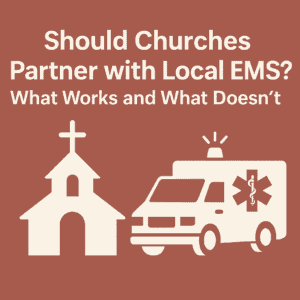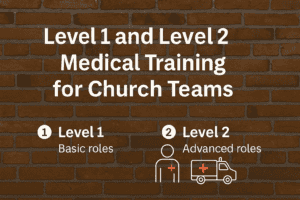In recent years, the topic of church security has taken on greater importance as churches of all sizes face the potential for incidents such as health emergencies, theft, and even acts of violence. As community gathering places, we must recognize the responsibility we have in ensuring the safety and well-being of our congregations and visitors.
As faith leaders and members of our communities, we have a duty to create an environment that is welcoming and secure for everyone who walks through our doors. Our churches should be sanctuaries, where people can come together to celebrate their faith without fear. By being proactive and implementing effective security measures, we are better equipped to respond to potential threats and maintain a safe space for all.
Aside from protecting our congregations and visitors, a strong church security plan also helps to safeguard our assets and resources. Be it monetary donations, valuable religious artifacts, or sacred spaces, preserving the integrity and sanctity of our churches is a crucial aspect of our overall mission. As we continue this discussion, we will explore various strategies and recommendations for establishing effective and comprehensive church security measures.
Why Church Security Is Important
Preventing Violence and Accidents
Church security is crucial to safeguard our place of worship from potential threats. While most churches will not face mass shootings, they are still vulnerable to accidents, thefts, and health emergencies. By implementing security measures, we can help deter any acts of violence and create a secure space for our congregation.
Supporting communication within our church staff and security team is also essential for effective emergency response. Through the use of two-way radio communications technology, we facilitate quick and accurate communication between personnel, enabling real-time action when faced with potential security or safety issues.
Protecting Members and Visitors
Our church members and visitors deserve a safe and protected environment when they attend services and activities. Implementing security measures ensures their well-being and allows them to freely participate in religious activities without fear. An effective church security team plays a vital role in preventing theft from unattended vehicles in the parking lot and helps ease concerns for church leaders.
Preserving a Safe Environment for Worship
As more guests inquire about church security, it becomes increasingly important for us to maintain a safe environment for worship. By staying vigilant and using affordable security technology, such as advanced video security systems, we can monitor activities and address any security concerns.
Church security serves to prevent violence, protect our congregation, and preserve a safe environment for worship. By implementing appropriate security measures and fostering a sense of vigilance within our church community, we can ensure that our place of worship remains a peaceful sanctuary for all who attend.
Key Elements of Church Security
Establishing a Security Plan
One of the crucial aspects of church security is having a well-thought-out security plan in place. A solid church security plan involves assessing the risks, identifying areas of vulnerability, and designating proper protocols to follow during emergencies or security threats. It is also essential to include an access control system, ensuring that only authorized personnel have access to specific areas within the church premises.
We recommend regularly reviewing and updating the security plan to address changes in threats, personnel, or church activities. Training volunteers and staff members on the plan is vital to ensure the smooth implementation of safety measures when needed.
Creating a Security Team
A church security team is responsible for executing the security plan and keeping church members, staff, and visitors safe. The team should include individuals with various skill sets, ranging from security professionals to those with strong administrative or communication skills. It’s important to have a security director who can oversee the team and coordinate activities.
We believe that creating a volunteer security team is an excellent way to involve the congregation in maintaining a safe environment in the church. Providing regular training to the team ensures they are prepared to handle different types of emergencies effectively.
Implementing Security Measures
In addition to having a solid plan and dedicated security team, it’s crucial to implement various security measures to mitigate risks and enhance overall safety. Some of the key security measures to consider include:
- Installing a CCTV system to monitor activities within the church, as well as around the parking lots, entrances, and hallways.
- Implementing an access control system to limit access to sensitive areas and minimize unauthorized entry.
- Ensuring child safety by setting up a secure check-in station and clear policies for interactions between children and staff members or volunteers.
- Working closely with local law enforcement agencies to coordinate emergency plans and receive guidance on church security best practices.
By incorporating these elements into your church’s security approach, we can ensure a safer environment for everyone who visits or worships at the church. Remember that church security is an ongoing process, and regular evaluation and improvement of security measures are necessary to maintain a secure and welcoming atmosphere.
Collaboration with Law Enforcement and Emergency Services
Working with Local Police
As a church community, it’s important for us to connect with local law enforcement to help maintain the safety and security of our congregation. Law Enforcement often has specialized training in securing vulnerable spaces like places of worship. By engaging with law enforcement, we ensure that our safety plans align with best practices and available resources.
Some of the ways we can collaborate with local police include:
- Establishing an ongoing communication channel for sharing information on threats and incidents
- Coordinating emergency drills that involve both church members and law enforcement personnel
Partnering with Firefighters and Emergency Medical Services
In addition to working with local law enforcement, our church can greatly benefit from collaborating with firefighters and emergency medical services (EMS). These professionals can provide valuable insights and assistance in various areas, such as:
- Fire prevention and evacuation planning
- Medical emergencies and disaster response
Collaborating with both law enforcement and firefighters allows us to create a more comprehensive safety plan that addresses different types of emergencies. Additionally, by involving medically trained individuals from our congregation, we can further strengthen our response capabilities and provide targeted training for our church’s security team.
Some strategies we can implement to partner with firefighters and EMS include:
- Conduct joint training sessions on emergency response and first aid
- Invite experts to educate our congregation on fire safety and emergency preparedness
Establishing partnerships with law enforcement and emergency services is crucial for ensuring the safety of our church community. By working together, we can develop and maintain effective security measures to protect our congregation from potential threats and respond effectively to emergencies.
Maintaining Safety in Church Parking Lots and Surroundings
Security Presence in Parking Lots
One of the first steps we can take to ensure church security is to have a strong security presence in our parking lots. By designating someone “official” to patrol the parking lot regularly, we can deter potential bad actors and prevent crimes from happening. Additionally, a visible security presence can help members and visitors feel safe as they arrive and leave our church and help visitors figure out where to go.
It is important for our security team to be aware of any suspicious activity and act accordingly. We must ensure that our team is well-trained and prepared to handle situations that may arise. In the case of emergencies, having a clear and concise communication system can be crucial for our security team’s effectiveness.
Weather and Environmental Threats
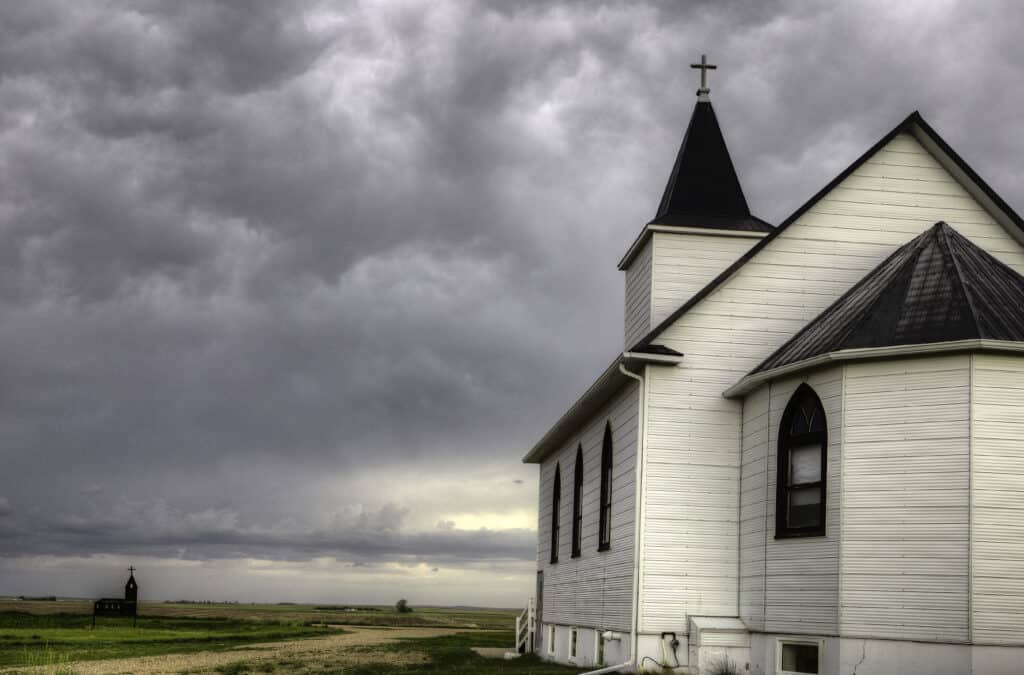
We must also be mindful of the various weather and environmental threats that can impact our church surroundings. In addition to crime prevention, our security team should be prepared to handle situations related to severe weather or natural disasters. By having an up-to-date emergency response plan in place, we can protect our congregation and minimize the effects of weather-related incidents.
Some key aspects of our plan should include:
- Regularly monitoring weather conditions and alerts
- Identifying safe areas of our church property, such as storm shelters or safe rooms
- Establishing clear evacuation routes and assembly points during emergencies
- Training our security team, staff, and volunteers in emergency procedures
To further enhance our security, we can also invest in physical security measures like video surveillance and alarms, which serve as deterrents and provide valuable evidence in the event of an incident.
By maintaining safety in our church parking lots and surroundings, we can not only protect our congregation but also foster a welcoming environment for worship and fellowship.
Responding to Emergencies and Health Concerns
Providing Medical Assistance and First Aid
In our church, we prioritize the well-being and safety of our congregation. Accidents can happen unexpectedly, and it’s crucial for the safety and security team to be prepared to provide medical assistance and first aid. This helps ensure the injured church member receives immediate attention and care, whether it’s a minor injury or a more serious issue like a heart attack.
We work closely with an oversight board to develop and implement a strategy for handling medical emergencies. This includes identifying qualified people within our congregation who have medical training, such as doctors, nurses, or certified first responders. These individuals serve as crucial resources during emergencies, offering assistance and guidance to the security team when needed.
Managing Emergency Situations
Not all emergencies are health-related; some involve active threats, like an armed intruder entering the church. We recognize the importance of preparing for these situations as well. Our safety and security team, in collaboration with the oversight board, establishes plans and protocols for handling various emergency scenarios.
These plans include:
- Regularly updating our emergency procedures and guidelines to ensure they remain relevant and effective.
- Conducting background checks on all church security team members to establish a trustworthy and reliable team.
- Training security team members in crisis management and emergency response techniques.
- Developing working relationships with local law enforcement, emergency responders, and other community partners to help streamline emergency response times.
By proactively planning and preparing for emergencies, we can minimize panic and confusion during a crisis. Our goal is to maintain a secure and welcoming environment for everyone who enters our church, ensuring that all members of our congregation feel safe and supported during their time with us.
Importance of Security Training and Education
Training Church Security Teams and Volunteers
Proper security training is crucial for ensuring the safety of our congregations. We must equip our church security teams and volunteers with the skills necessary to handle and respond to potential security threats. By providing regular training sessions, we not only reinforce best practices but also empower our teams to protect our worshippers and facilities.
Through ongoing training, our security personnel will develop an understanding of various security risks and learn how to respond effectively to potential situations. This includes conducting thorough background checks, implementing safety protocols, and coordinating with local authorities when necessary. It is our responsibility to create a safe environment for everyone involved in our worship community.
Educating Congregants on Preparedness
We must also educate our congregants on the importance of being prepared for potential emergencies and security incidents. Providing clear guidelines on how to react during a crisis can greatly increase personal safety and overall security.
- Communicate security plans and policies: Ensure that the congregation is aware of the security measures in place and how they can contribute to maintaining a safe environment.
- Hold emergency preparedness drills: Organize regular drills to familiarize the congregation with evacuation routes, emergency exits, and proper safety procedures.
- Engage with local authorities: Collaborate with police, fire, and emergency services to ensure that they are familiar with our facilities and prepared to respond to incidents promptly.
By establishing a well-trained church security team and educating congregants on emergency preparedness, we mitigate the risk of leaving our worship places unprotected. It is our duty, as a church community, to maintain a secure and welcoming space for all.
Additional Considerations
The Role of Insurance in Church Safety and Security
In our efforts to maintain safety and security within our churches, we must consider the role that insurance plays in risk management. It’s crucial to have a comprehensive insurance plan that covers potential physical damages, liability, and other risks associated with church operations. We can collaborate with our insurance providers to identify potential vulnerabilities and develop a security plan that addresses them effectively.
For instance, our insurance provider may require us to install surveillance cameras, implement regular safety audits, and involve law enforcement officers in training and emergency response plans. By fulfilling these requirements, we can ensure that our church remains a safe and welcoming environment for all.
Balancing Faith, Love, and the Need for Security
Creating the perfect balance between faith, love, and the need for security in our church can be a delicate process. It is essential for us to maintain a positive, welcoming atmosphere where our congregants can feel at ease while practicing their faith. However, this does not mean disregarding the importance of implementing a solid church safety strategy.
We should consider the following aspects while designing our security plan:
- Encourage open communication within our church community regarding safety concerns and potential threats.
- Offer training sessions to our congregation, focused on developing a sense of awareness and understanding of potential risks. This can include seminars on emergency protocols, self-defense, or even cyber security best practices.
- Foster collaboration with local law enforcement agencies, inviting them to participate in our safety endeavors and establish a strong relationship with our community.
- Develop a system that protects the privacy of our members, safeguarding their personal information while still allowing us access in case of emergencies.
By taking these measures, we can effectively balance our values of faith, love, and the need for security, ensuring a safe and nurturing environment for our congregation.
Conclusion
In today’s world, the importance of church security cannot be overstated. As we gather in our places of worship, our primary concern should be the safety and well-being of our congregation. By implementing proper security measures, we can ensure that our churches remain a safe and welcoming space for everyone.
We recognize that our churches are places where people come together to find solace, support, and community. However, we must also acknowledge the potential risks that come with any gathering of people. Health issues, mental health issues, accidents, liability, child safety, and relational conflicts can arise during church activities, making it crucial to have protocols in place to address these concerns.
As we develop our church security plans, it is essential to involve our community members and church staff, as they play a crucial role in motivating others to cooperate in security measures. By fostering a culture of safety and preparedness, we can empower our congregation to actively contribute to the security of our church.
The use of technology, such as advanced video security systems, can significantly enhance the safety of our premises. Furthermore, secure practices for handling funds and other material resources protect the assets that support our church’s mission.
In conclusion, securing our churches is not only a matter of physical safety but also a way of preserving the sacred space where our communities can connect and grow spiritually. By being mindful of the potential risks and proactively addressing them, we can ensure that our churches continue to provide a nurturing environment to support the spiritual journey of all who enter.
Join us in taking action to make our churches a safer place for everyone. Schedule one of our training sessions on church security and learn how to implement proper security measures to ensure the safety and well-being of your congregation. By working together and fostering a culture of safety and preparedness, we can create a secure environment for worship, fellowship, and spiritual growth. Let’s take the necessary steps to protect our churches and preserve the sacred space where our communities can come together. Sign up for our training today and make a difference in the safety and security of your church.

